The 2nd Comparative Communication Study International Symposium was held at Wuhan University on November 14, 2019. This symposium was organized by Center for Studies of Media Development, Wuhan University (Key Research Institute of Humanities and Social Sciences at Universities, Ministry of Education, P.R.C.), School of Journalism and Communication, Wuhan University and School of Communication and Creative Arts, Deakin University, Australia, and was co-organized by the Editorial Department of Journalism & Communication Review, the Editorial Department of China’s Intercultural Communication Studies, Journalism and Communication College of Xinjiang University, and Research Center for Intercultural Communication of Wuhan University.
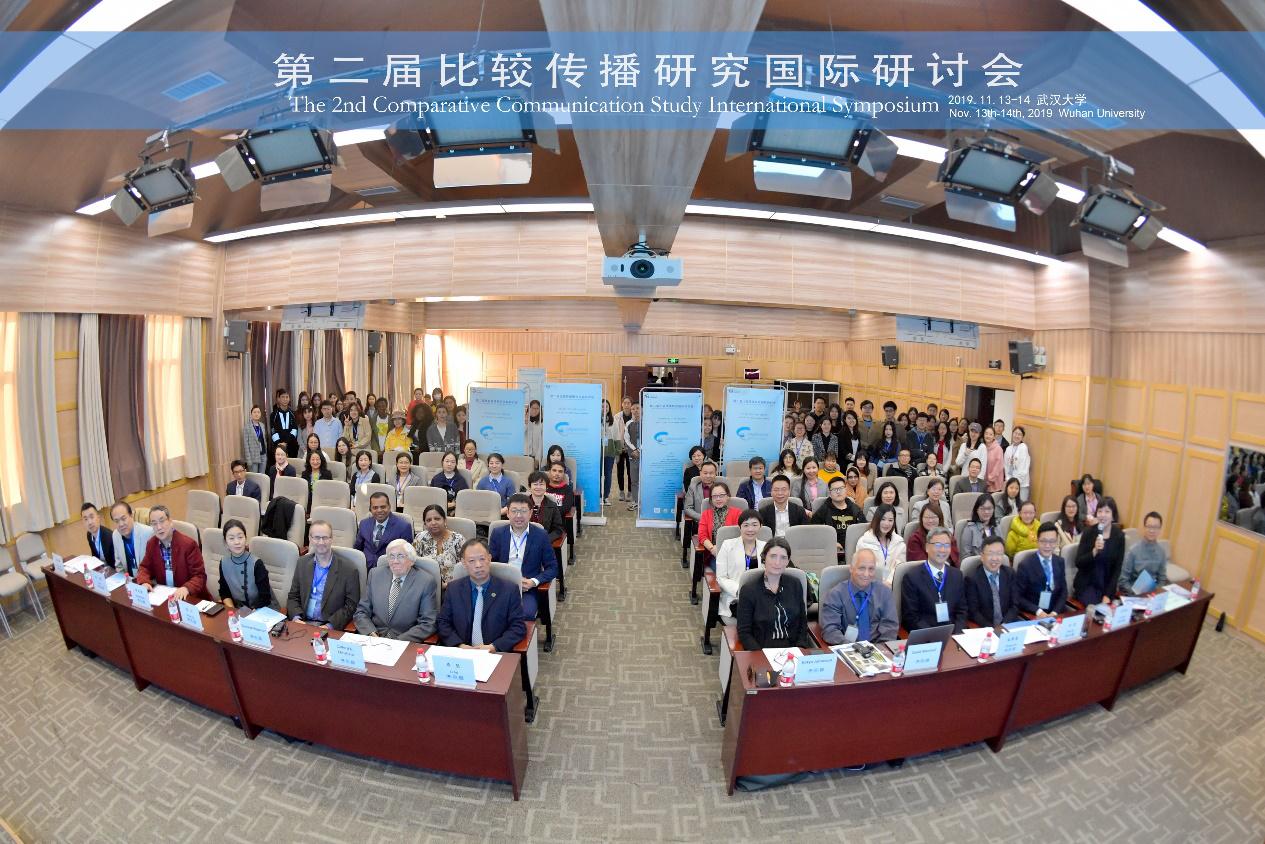
Group photo
Distinguished guests were from universities both home and abroad, including Deakin University(Australia) , UIUC and Duke University (U.S.), University of Colombo (Sri Lanka), Peking University, Fudan University, Huazhong University of Science and Technology, Wuhan University, Zhengzhou University, Xinjiang University, Guangdong University of Foreign Studies, Fujian Normal University and South-Central University for Nationalities. They gathered at the feet of Luojia Mountain, exchanged their observations on comparative communication issues via 3 keynote speeches and 10 sub-forum speeches in total.

Opening remarks by Professor Li Fei, Vice President of Wuhan University

Opening remarks by Professor Katya Johanson, Deputy Dean of Academy of Humanities and Social Sciences, Deakin University, Australia
At the opening ceremony, Professor Li Fei, vice president of Wuhan University and Professor Katya Johanson, deputy dean of Academy of Humanities and Social Sciences, Deakin University, Australia, made opening remarks respectively. Professor Li Fei said,” The key to interdisciplinary development lies in focusing on problems and projects and gathering talents from various disciplines to produce important interdisciplinary theoretical and practical results in close collaboration. The study of comparative communication is endowed with interdisciplinary, comprehensive and strategic features. This symposium continues to provide a platform of dialogue for communication scholars from different countries and regions, and thus promotes the development of comparative communication study.” Professor Johanson recalled the 1st Comparative Communication Study International Symposium last year, and affirmed its role in promoting academic research of Deakin University, the research partnership between Deakin University and Wuhan University, and Deakin scholars’ understanding of comparative communication in China. And she wished this year’s symposium an equal success. Professor Johanson added,” The symposium itself is a typical practice of cross-cultural communication.”

Guests from home and abroad starting the symposium together

Professor David Marshall delivering a keynote speech
After the opening ceremony, Professor David Marshall from Deakin University gave the first keynote speech—Understanding Comparative Communication through the Perspective of Comparative Persona. In his speech, Professor Marshall briefed the history of disciplines related to comparative communication, sought common grounds with comparative communication study, and thus clarified the origin of comparative communication. Next, he explored how comparative personality study appears in personality study, and further sought what new research perspectives it provides for comparative communication study. Professor Marshall listed multiple directions for the development of comparative communication, and the direction he proposed is: how our new communication forms can change our public performance in a specific manner? Such comparative dimension requires the understanding of the complexity of comparative communication. Professor Marshall called for the new field personality study. He aimed to analyze comparative personality from the specific dimension of network comparative personality, whereby he could explore ways to promote the development of comparative communication study of the new generation from such a dimension.
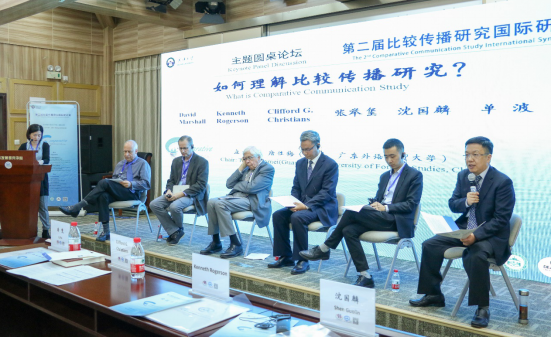
Keynote panel discussion
During the keynote panel discussion chaired by Professor Tang Jiamei from Guangdong University of Foreign Studies, Professors Clifford G. Christians, David Marshall, Keneth Rogerson, Zhang Juxi, Shen Guolin, Shan Bo engaged in a dialogue on “What is comparative communication study”. Three questions were raised—What is comparative communication study? Can comparative communication study bring dialogues, and how? Can comparative communication study eliminate binary oppositions and centralism, and how? These professors shared their opinions on these questions. They came to an unanimous agreement that comparative communication study should focus on bringing talks. Although there is certain difficulty in eliminating binary oppositions, all circles should square up to the differences and seek possibilities of holding talks with an equal and cooperative attitude.
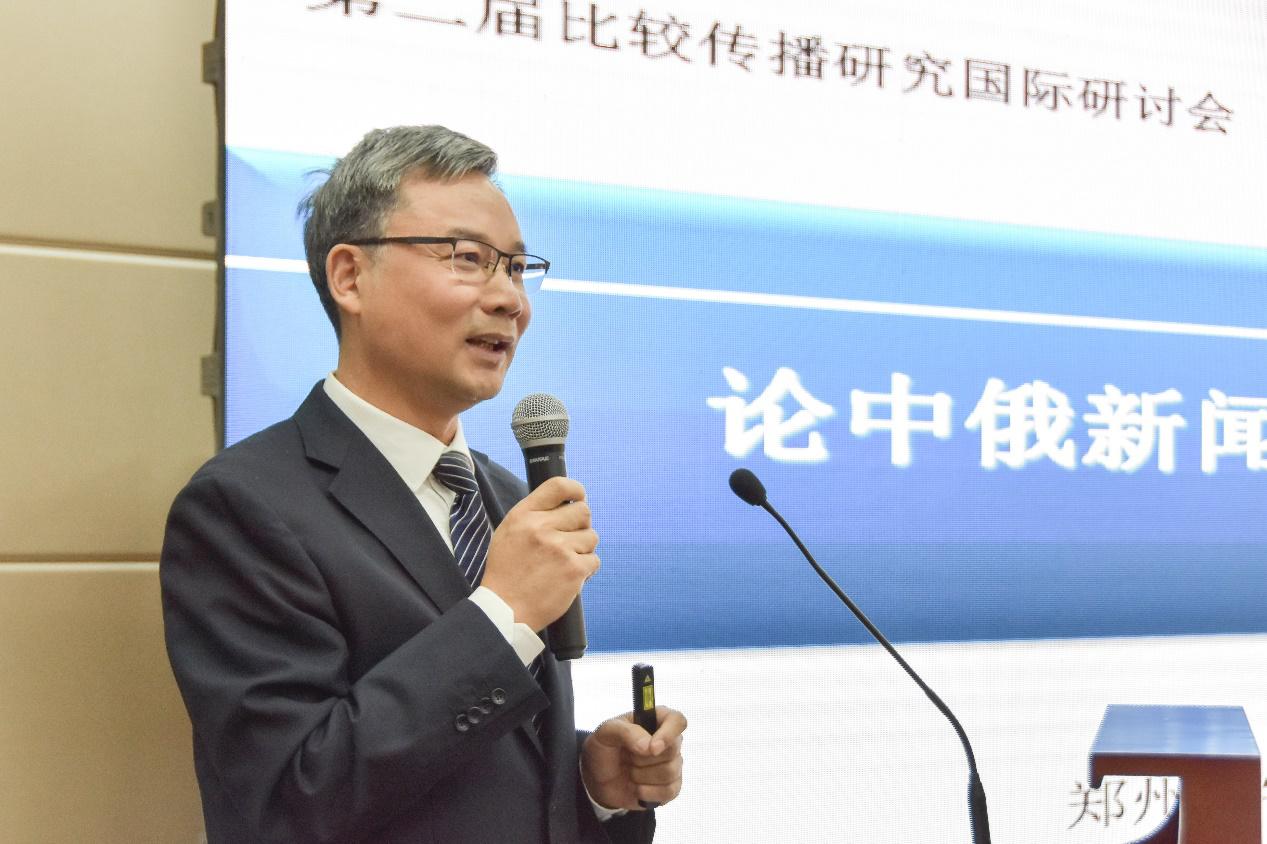
Professor Zhang Juxi delivering a keynote speech
After the discussion, Professor Zhang Juxi from Zhengzhou University delivered a keynote speech entitled On the Similarities and Differences between Chinese and Russian News Functions. Professor Zhang summarized three similarities of news functions of China and Russia based on his own studies, namely, 1. having drawn a unforgettable lesson in the normalization of news functions; 2. making information dissemination the basic function of journalism; 3. governments attaching importance to creating an appropriate atmosphere of public opinions via media. Then, Professor Zhang mentioned five differences between news functions of China and Russia, namely, 1. the naming on journalism; 2. the development patterns of journalism and news functions; 3. the essences of China’s news publicity and Russia’s information dissemination; 4. features of propaganda; 5. development trends of functions of modern media.
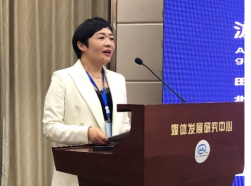
Spokesperson Tian Li

Spokesperson Zhang Luli
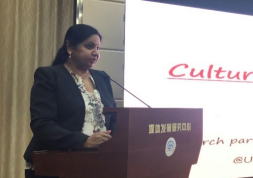
Spokesperson Usha M. Rodrigues
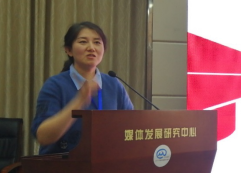
Spokesperson Wang Qinqin
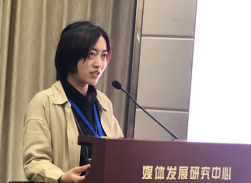
Spokesperson Zhao Luolin
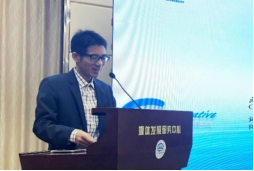
Respondent Xu Kaibin
Two sub-forums were held consecutively in the afternoon. In the first sub-forum, Associate Professor Tian Li from Peking University gave a speech entitled A Cross-Cultural Comparative Study of Video Game Consumption; Associate Professor Zhang Luli from South-Central University for Nationalities gave a speech entitled The Paradigm Difference Between Max Weber and Hofstede’s Comparative Study of Values; Teacher Usha M. Rodrigues from Deakin University gave a speech entitled Cultural Diversity and News in Australia; Associate Professor Wang Qinqin from Xinjiang University gave a speech entitled Comparative Analysis on the Construction of Xinjiang Tourism Image by Traditional Media and New Media from the Perspective of Constructivism, under the cooperation with a postgraduate Song Ge; Ms. Zhao Luolin from Wuhan University gave a speech entitled The Commercial Discursive Production and Relationship Structure of Online Sharing in China: A Cultural Comparative Analysis.

Spokesperson Niu Jing
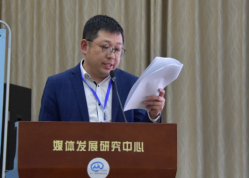
Spokesperson Xu Jian
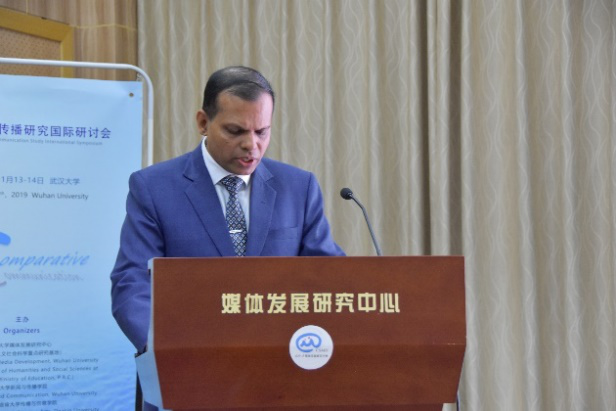
Spokesperson Sugath Mahinda Senarath
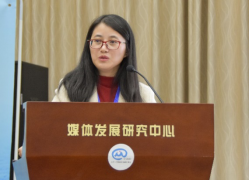
Spokesperson Liu Yun
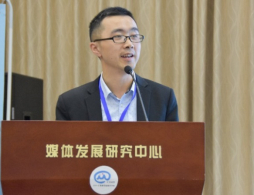
Spokesperson Wu Shiwen
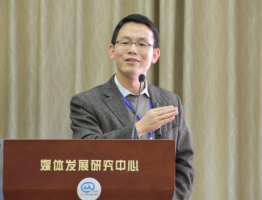
Respondent Shen Guolin

Chair Liu Jinbo
In the second sub-forum, Professor Niu Jing from Huazhong University of Science and Technology shared her research entitled Same Choices, Different Experiences — Professional Identity and Turnover Choice of Media Practitioners Based on the Theory of Life Course, which was completed in cooperation with a PhD student Zhao Yifei; Mr. Xu Jian from Deakin University gave a speech entitled The Rise and Fall of the ‘King of Hanmai’—MC Tianyou, which was completed in cooperation with Teacher Zhang Ge; Mr. Sugath Mahinda Senarath from University of Colombo gave a speech entitled Changing Focus of Asian Communication Research, which was completed in cooperation with Teacher Kalinga Seneviratne from Singapore National University. Ms. Liu Yun from Fujian Normal Univeristy shared her research entitled Cultural Adaptation and Cultural Interventions——A Case Study of Chinese Visiting Scholars at University Texas; Associate Professor Wu Shiwen from Wuhan University gave a speech entitled Being Absent "Others": What Chinese Public Discourses Say About India's Internet and its History.

Professor Shan Bo delivering a keynote speech

Chair Lv Shangbin
After the two sub-forums, Professor Shan Bo from Wuhan University delivered a keynote speech entitled Rethinking Comparative Communication Study. “Comparative study is generally in dire straits of dissolving others—either hiding others’ existence, or defying others’ sense of presence and getting it assimilated to centralism. Unfortunately, the situation is even worse in comparative communication study.” Professor Shan Bo confronted the dilemma of comparative communication study, and raised a question that “how has comparative communication fallen into such dilemma of ‘covering the existence’ and ‘covering the communication relationships’? And how can we find ways to uncover the existence?” Regarding these questions, Professor Shan Bo introduced the Comparative Echo Chamber Effect, and pointed out, “we should face comparable and contextual question-raising, practice communication in reality, and reflect on the communicators themselves based on their communication activities”. Professor Shan Bo believed that the mission of comparative communication study, fundamentally, is to uncover the existence of communication relationships and existing communication relationships. Hence, researchers have to observe human communication practices in a way full of presence, and only then can they find outlets of this field. According to this idea, he proposed the contextualized comparative communication study pattern, which means conducting comparative communication study in objective, subjective and relationship situations.
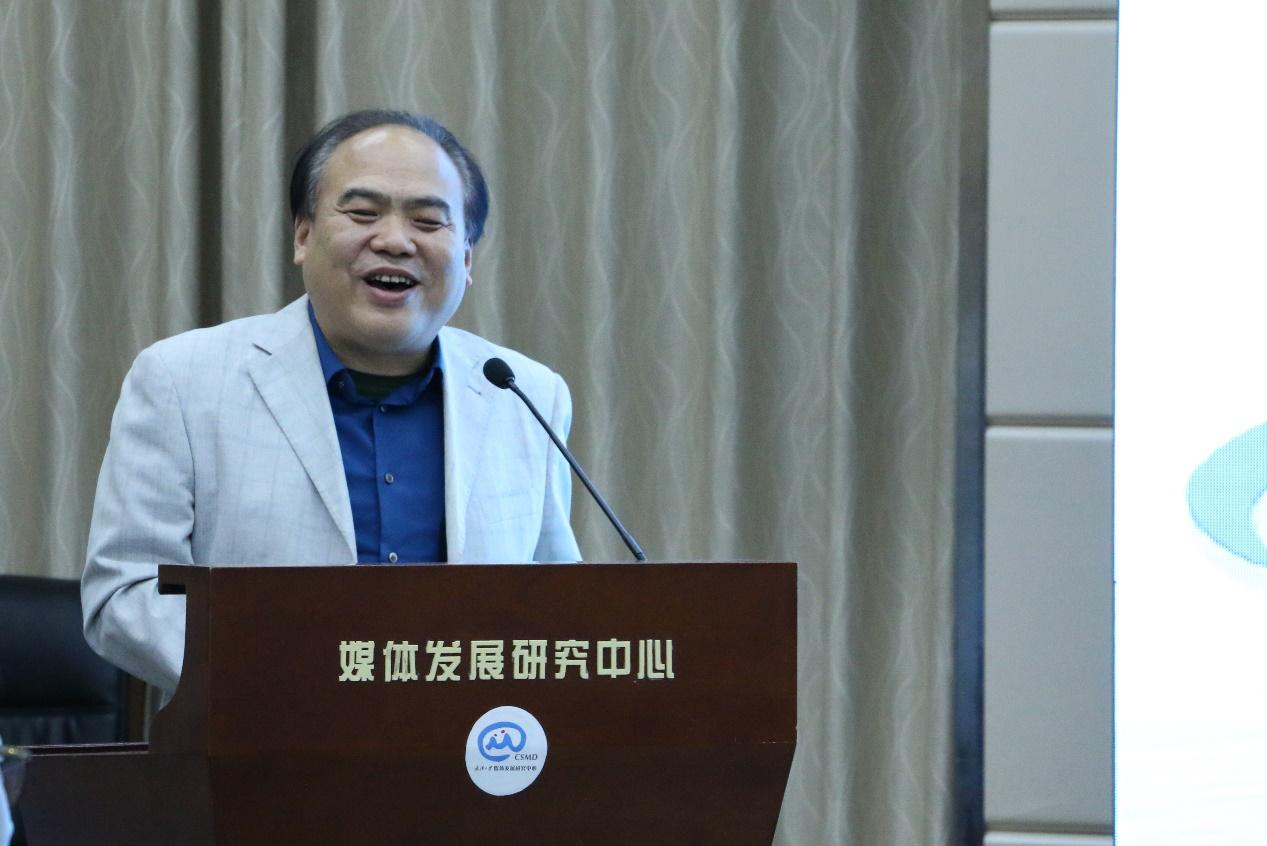
Chair Yao Xi

Concluding commentator Xiao Jun
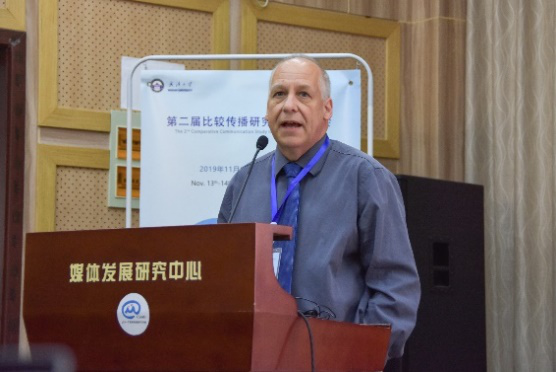
Concluding commentator David Marshall
At the closing ceremony, Professor Marshall and Associate Professor Xiao Jun summarized the symposium in a dialogue manner, wholly presenting the situation of one-day study and communication. During the day, scholars from home and abroad have published 13 works in all. Both sides agreed that comparative communication itself is a kind of dialogue, and that this symposium is a comparative communication activity. Starting from their own studies, these scholars tried to seek similarities while retaining differences and seek possibilities of holding dialogues with all sides. Just as Xiao Jun confessed that comparative communication study often faces such challenges as comparison and non-comparison, comparability and incomparability, canonical comparison and misalignment comparison. Researchers gathering here provide us with confidence to tackle these challenges. The consensuses are as follows. First, comparative communication study is a must-do study with value of the times, and it requires further global cooperation in the future. Second, researchers should bear equal value recognition and humility. Professor Marshall stated that two symposiums have provided a good platform for dialogues involving all sides, and also enabled faculty from Deakin University to know more about Chinese scholars. Finally, both sides expected the next symposium.
Rewritten: Liu Xinfan, Cao Siyi


